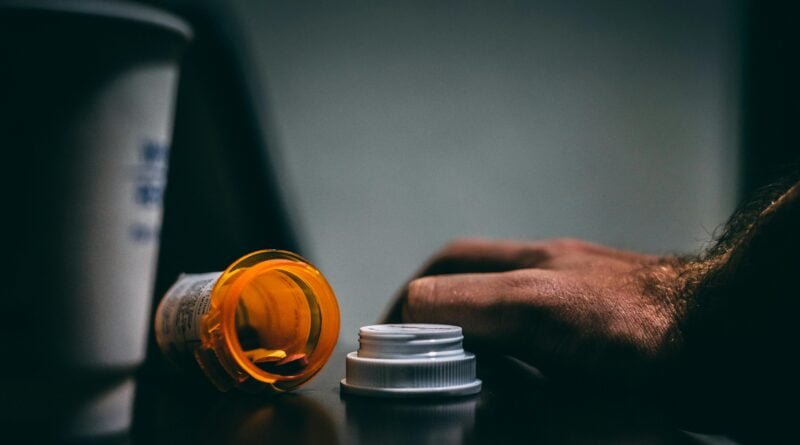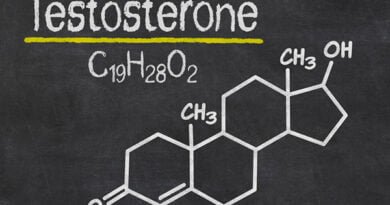Drug Rehab: Focuses on recovery from drug addiction.
Introduction
Substance abuse is a chronic disorder that touches the lives of people across different populations and ages. New data says that 21.6 million adults from the United States who are 12 years old and above have problems with substance use disorder and only a small percentage of those people get the help they need.
There are several social effects of substance use to the addict, other family members and the entire society.
The good news, however, is that recovery is a distinct possibility. For this we have the drug rehab program, treatment, and support, which can help the people fighting the addiction to win the battle every day. This article is very informative in explaining the process in drug rehab for one to be taken through the path of recovery.
The Road to Addiction
Drug dependency usually occurs as a result of trial or recreational use of substances such as alcohol, benzodiazepines, opioids, marijuana, cocaine, methamphetamine. First time use may appear to be entertaining or a trivial pastime, or as a way of breaking the stress or other related concerns.
Gradually the use becomes habitual, the substance becomes a matter of addiction or dependency where the main focus is to seek the drug. The use and taking of substances is often uncontrollable by the addict even if it is causing physical deterioration or interference with work or school, financial issues and interpersonal relationships. Substance use alters the brain’s pathways in the long run therefore it becomes very difficult to stop using the substance on your own.
What is Drug Rehab?
Substance dependence treatment involves the medical and psychological processes of disengaging from substance dependence. The main aim is to assist individuals refrain from compulsive drug use and search for the substance and to overcome withdrawal, psychological dependency, and predispositions to relapse.
Contemplative drug rehabilitation comprises various elements, which include detoxification, behavioral treatment, pharmacological treatment, peer support, and relapse prevention training, and aftercare planning. Drug rehab happens in a number of different places such as outpatient services, intensive outpatient services, partial hospitalization services, residential drug rehab centers, and others.
Treatment planning is quite unique depending on the type of addiction, presence of other disorders, and other factors.
The First Step: Detox and Handling Withdrawal
Detoxification is commonly considered as a first stage towards the recovery of an addiction to drugs. Detox is a process of washing out all substances that may be in the body while at the same time ensuring the withdrawal symptoms are handled to avoid becoming life threatening. This supervised process varies based on factors like:This supervised process varies based on factors like:
Type of drug(s) used – quantity and regularity – length of active drug use – own health condition and previous illnesses
The types of medications used during detox help ease physical and psychological symptoms like:The types of medications used during detox help ease physical and psychological symptoms like:
- – Muscle and bone pain
- – Nausea, vomiting, diarrhea
- – Shaky, shaking, or spasmodic movement
- – Anxiety, depression, and suicide intention
- – Desires and use of drugs
For instance, an opioid dependent individual who presents with heroin or prescription painkiller dependence may be administered buprenorphine or methadone to manage withdrawal symptoms during the initial detoxification stage. Medications such as Valium which are from the benzodiazepines family are used for alcohol, sedative, or anxiety drug withdrawal. The Detoxification process can take a few days up to weeks and after which, the person starts the normal rehab treatments. Medical detoxification is safe, comfortable, and around the clock outpatient that ensures the individual is closely supervised while the toxins are being eliminated from the body.
Psychotherapy: The Treatment of Mind and Soul
After this, there is a series of counseling and behavioral therapies as the central part of the complete treatment in drug rehabilitation. The therapists and treatment staff assist each patient in understanding what led to their problem with substance abuse. Examples of drug rehab therapies include:Examples of drug rehab therapies include:
Cognitive Behavioral Therapy (CBT): Identify distorted cognitions and maladaptive behavioral processes that trigger substance use and develops healthy alternatives and personal care management.
Contingency Management (Motivational Incentives): Incentives the patient to remain drug free and continue with the therapeutic process through positive reinforcement.
Group Therapy: Peer support and interventions for patients suffering from addiction under supervision of credible counselors.
Individual Counseling: Covers life events, significant others, abuse, and stress factors related to substance use and psychological health.
Experiential Therapies: Engages in artistic expression, listening to music, going out for physical activities or engaging in certain exercises such as meditation to embrace other forms of healthy coping mechanisms for a substance-free life.
Psychoeducation Classes: Discusses and explains about addiction, effects of substances, relapse prevention skills, and many other procedures that are useful in recovery.
Family Counseling: For example, there are additional sessions where family and friends are invited to help restore relationships that were ruined by substance abuse.
Long-Term Residential Treatment
Long-term substance abuse or substance abuse related to serious health issues or substance abuse that recurs frequently makes candidates opt for residential rehabilitation programs. Outpatient drug rehab takes people away from settings that trigger or stress them out, away from old people, places, things, and situations.
The staff and the organizational culture of the units also play a significant role in determining the success of the treatments as most of the patients are exposed to a highly structured and specialized treatment environment.
The therapeutic community includes peers in order to eliminate or modify addictive thinking and behaviors as well as daily life patterns.
Typical elements of residential drug rehab include:Typical elements of residential drug rehab include:
- – Round the clock medical and psychiatric attending
- – These are the private and group session.
- – Case management
- – Medication management
- – MAT for coexisting mental disorder
- – Complementary and support care, such as art treatment, massage, and yoga
- – Family visitation sessions
It should be noted that on average, the residential drug rehab last for 30-90 days although there are some that may last for 6 months and even more. Inpatient rehab lets individuals dedicate full attention towards their sobriety and build stable recovery skills.
Aftercare Planning
Towards the end of the stay in a residential or intensive outpatient substance use treatment program, staff and the patient work together with the family to develop an aftercare plan. Part of the relapse plan, this is a roadmap to getting a successful recovery back at home, at the workplace, and in society.
Aftercare plans suggest resources like:Aftercare plans suggest resources like:
- – Outpatient counseling
- – 12-step programs
- – Sober living homes
- – Job training services
- – Connection to other systems of care
- – Medication management
- – Volunteer opportunities
It is very much like all other chronic diseases of the body where patients struggle to understand how to deal with their symptoms and try to move forward with the rest of their lives.
While one is not capable of being treated, the other can be treated and managed successfully in the long run. In the present time, addiction is categorized as a multifaceted and manageable medical disorder like any chronic diseases such as diabetes, hypertension, asthma, and many more. Psychotherapy, self-help, mutual support, applied changes, and long-term follow-up are effective for decades to maintain drug-free status.
Today thanks to rehabilitation programs millions of people are living a happy healthy active life in recovery from drug addiction if they persevere and ask for assistance.
If you or anyone you know is a drug dependent person, get in touch with us today. There are a lot of materials available to help people to find hope, recovery, and to stay away from alcohol. Recovery is the first step towards regaining the optimal you or the next best thing to that.





Pingback: Alcohol Rehab: Breaking Free of the Bonds: A Guide to Recovery and Beyond - Nixo city is your safe place in an unsafe world2024
Pingback: Top 10 Universities in the World for 2024
Thanks for sharing. I read many of your blog posts, cool, your blog is very good.